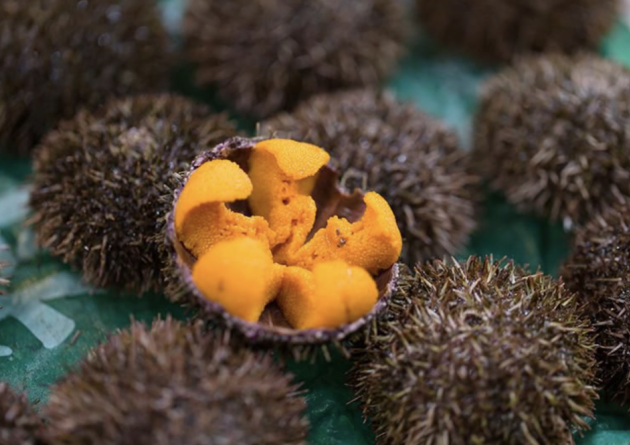Thesis projects for the Master of Environmental Science and Management and Master of Environmental Data Science programs are data-driven and competently researched solutions to real-world environmental problems, whether it's analysis of a marine conservation program, or an eco-entrepreneurial venture that fill a market gap.
Master's thesis and capstone projects provide students with unequaled training and experience in performing professional-level work that involves managing group dynamics, developing strategies, and applying technical expertise to solve complex multidisciplinary environmental problems. Every master's student is required to complete a thesis or capstone project.
The companies and organizations who partner with Bren School master's students gain a valuable opportunity to have a group of bright and determined students tackle a real-world environmental problem. The Bren School accepts proposals for MESM Group Projects and MEDS Capstone Projects once per year. Any agency, company, organization, or individual facing an environmental challenge is welcome to submit a proposal.

Master of Environmental Science and Management
MESM students are required to complete either a Master's Group Project or an Eco-Entrepreneurship Project to fulfill their thesis requirement. These small-group projects solve an environmental problem proposed by a client agency, business, or organization.
Master's Group Projects
Group Project teams usually comprise four to five students who spend nine months collaborating to solve an actual environmental problem faced by a real-world client. Each year, students, faculty, and prospective clients submit proposals for new Master’s Group Projects. Past projects have solved environmental problems in areas such as: apparel industry sustainability, pollution impact on human health, microplastics, marine environment protection, corporate carbon footprint, sustainable fisheries and aquaculture, drought resilience, sustainable agriculture in communities, freshwater pollution, food waste streams, electric vehicles, renewable energy impacts, and ecosystem conservation.
Eco-E Projects
Eco-E teams usually comprise three to five students who collaborate over the course of a year to develop a business model intended to bring a new, commercially viable product or service to market and to make a positive and measurable environmental impact. Students develop and refine a business model, learn agile thinking to pivot strategy in light of new information and analyses, develop small-scale pilot projects or prototypes to obtain early customer feedback, and cultivate a network of advisors.
Communication Capstone Projects
MESM students can choose to add an optional focus area in strategic environmental communication and media, and these students produce Communication Capstone projects in Spring quarter. The capstone provides hands-on, professional experience in designing and creating environmental communication and media products for clients, who benefit by getting high-quality materials to help achieve their communication and outreach goals. Successful past capstone projects have included: community engagement plans, branding strategy, short films/video shorts, and more.
Master of Environmental Data Science
MEDS students complete a Capstone Project in teams of 3-4 students working together to design, conduct, and present a professional environmental data science product. Throughout the project, clients receive high-quality data science work that is approximately equivalent to one full-time employee engaged for six-months. This work helps students develop skills in project management, team-oriented data science, design and implementation, data processing /analysis /manipulation, reproducible workflows, quality assurance, interface development e.g., data visualization, technical documentation, and effective stakeholder communication. The projects also serve to expand both parties’ professional networks by connecting future and current environmental data science leaders.
Current Master's Projects
Explore examples of our current MESM Group Projects, Eco-E Projects, and MEDS Capstone Projects in the master's project directory. A handful of MESM Class of 2023 projects are featured below.





Submitting a Proposal
Non-profit organization, public agencies, companies, and individuals are invited to submit proposals for future thesis and capstone projects and become a project client. Over the years, project clients have received outstanding work at industry-level quality from Bren School students in pursuit of solving an environmental problem.
Bren has created comprehensive guides to submitting a successful project proposal for either of our master's programs: Master of Environmental Data Science (MEDS) and Master of Environmental Science and Management (MESM). Please refer to our Request For Proposal information pages for both programs, which include details about proposal requirements, deadlines, format, and project timelines.